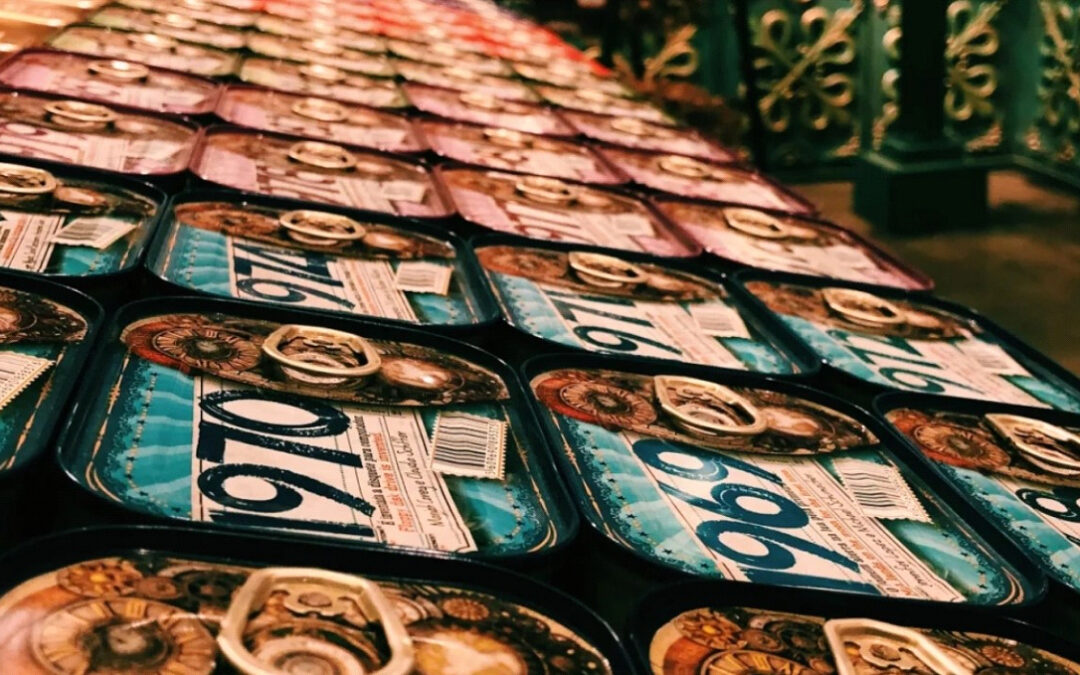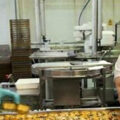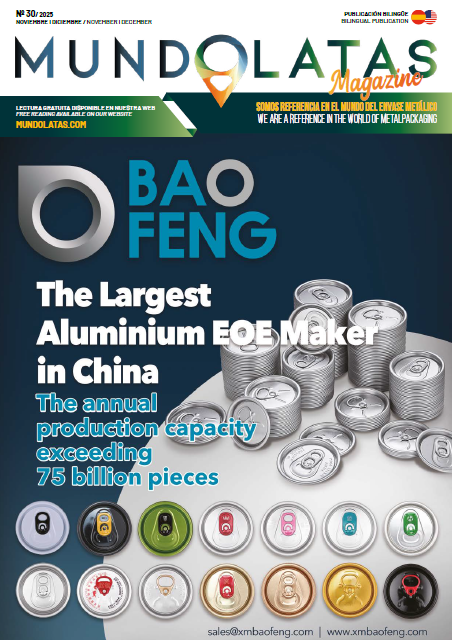Probably, in their last experience with a can of canned goods, they realized that there was more product than expected. This may be because the canning industry is being affected by the increase in the price of some raw materials, so they are looking for ways to lower costs. “Right now it’s cheaper to put more meat in the can and less oil,” industry sources confess. The rise in the price of olive oil puts against the ropes to a key industry for the Galician economy and living surrounded by obstacles to lift the flight at a time when many families have to make numbers to fill the shopping basket. This is of particular concern in Galicia, where the canning industry is key to the economy and faces many obstacles to prosper. At a time when many families are struggling financially and must tighten their belts to make basic purchases, this reality is even more worrisome,” he added.
Industry agents consider that, if the situation continues as it is, the Mediterranean diet itself will be threatened, and canned food will become a luxury product. The golden glow of the oil and the promising green of the olive have dimmed in recent times. As early as March 2022, olive managers spoke of a “perfect storm” to refer to the fatal conjunction of war in Ukraine, skyrocketing electricity prices and drought that was shaking the sector. But it went further. The cost of olive oil soared 52.5% in August 2023 compared to the same month in 2022, its highest year-on-year increase in 21 years. A rise that affects countless companies, including canning manufacturers.
Roberto Carlos Alonso is the person in charge of the National Association of Canned Fish and Seafood Manufacturers, ANFACO-CECOPESCA. He has been at the helm of the employers’ association for about a year and a half but has not had a single quiet day in the industry since the Ukrainian war broke out. Every day he faces new challenges as he struggles to solve the problems that arise. One of them has been the increase in raw material prices, something ANFACO has been struggling with for some time to minimize its impact on buyers.
Alonso, ANFACO-CECOPESCA’s secretary general, emphasized the challenges facing the seafood industry due to inflation and the rising cost of raw materials. The main objective is to remain competitive with attractive prices for consumers.
During 2022, the canning industry used about 55,000 tons of olive oil. This product is essential as it is used for canning fish or seafood, where only oil is added and sealed. The olive oil situation is a concern for Alonso, who points out that Spain is the world’s largest producer of this product.
Despite their dominant market position, the companies are currently unable to secure a better supply. In order to find the scarce product, they have had to explore other markets such as Greece and Egypt. The president of one company insists that they use high quality olive oil for their preserves, similar to that consumed directly. Therefore, the industry strives to highlight the advantages of buying these products and guarantees to comply with the highest quality standards.
“We have to remember that seafood products are essential in our diet for good health, that they do not contain additives, that they are rich in omega-3, that they prevent cardiovascular diseases, that they are rich in selenium, or calcium in the case of canned sardines, that it is a sustainable sector as Europe says in its common fisheries policy…. We have to reinforce the image of the sector to counteract these tensions that are occurring and encourage the consumption of fish and seafood, because there are lots of facilities to consume them four or more times a week”.
On the other hand, entrepreneurs are always attentive to the behavior of their customers, noticing an increasing demand for changes in the sizes of canned products. This has led to the can no longer being just an accessory but a central element in meals. In addition, the market is exploring new ways of preparing canned foods, incorporating technology and constantly using research and development to provide attractive solutions for consumers in line with marketing regulations.
A clear decline in sales. ANFACO explained that the sector does not benefit from inflation, but tries to offer affordable products and be competitive in the market. However, olive oil is not the only product affecting the sector, as since the beginning of the Ukrainian War it has suffered from the lack of sunflower oil due to the fact that Ukraine was its main exporting country.
According to Alonso, at that time there was concern about a possible interruption of supply, but today the situation is not so serious. “There is no serious risk now. It is true that there are problems, even with energy, but the line of work is to be as competitive as possible with the most competitive prices possible,” Alonso argues.
In spite of everything, the price increase has caused a decrease in consumption, reaching 10% according to some sources, while products have risen by 15%. For the time being, the association does not foresee a critical scenario that could lead to the closure of companies, although “each one has to study how it is”, although “it is too early to see it, and the levers that have always worked and that have led this sector to be centenary are the ones we have to focus on”.
He adds that the main problem he faces is the lack of balance between supply and demand in his sector. For this reason, ANFACO has taken its requests to Brussels, asking for better measures for certain species such as tuna, as well as an extension beyond the year 2025 established by the Community authorities.
During the Spanish Presidency of the Council of the European Union, ANFACO raised an issue considered crucial to bring citizens closer to a more competitive raw material. The organization requested that Spain and other member countries not give in to the proposal currently put forward by the European Commission, which they consider to be continuist and immobile, but that they adopt sufficient amounts to achieve this objective.
Alonso also reiterated that the amounts have increased, he also stressed the importance of time. He believes that two years are not enough and that at least three years are needed to be able to plan the supply of a global sector, which provides employment for more than 25,000 families in Spain.
Despite the current difficult situation, Alonso believes it would be desirable for other countries to have a sector as resilient as Spain’s. According to him, it is a valuable industry that deserves to be supported and there are resources available in the EU structural funds to address various difficulties.
The organization insists on the need to take measures to alleviate the current crisis, such as reducing VAT. According to its general secretary, “consuming fish and seafood helps to reduce health expenses, helps to live longer and better, so as a leading country in production and processing, we must maintain this situation”.
The employers’ association proposes greater legal certainty for companies, since a few months ago chaos was generated with the contracts of permanent discontinuous workers due to the interpretation of some inspectors. They also call for more vigorous action by the authorities against “unfair competition” by certain companies selling products as “fish of vegetable origin”.
One of the main concerns in the European market is the entry of foreign products from countries that do not follow the same rules and may introduce illegal fish and do not comply with the required environmental standards. Therefore, Spain must act in defense of its interests as the main industrial and processing country in Europe. Despite the difficulties, Alonso sent a positive message: “Although the situation is difficult, we will emerge stronger in the face of any adversity, as we have always done”.














